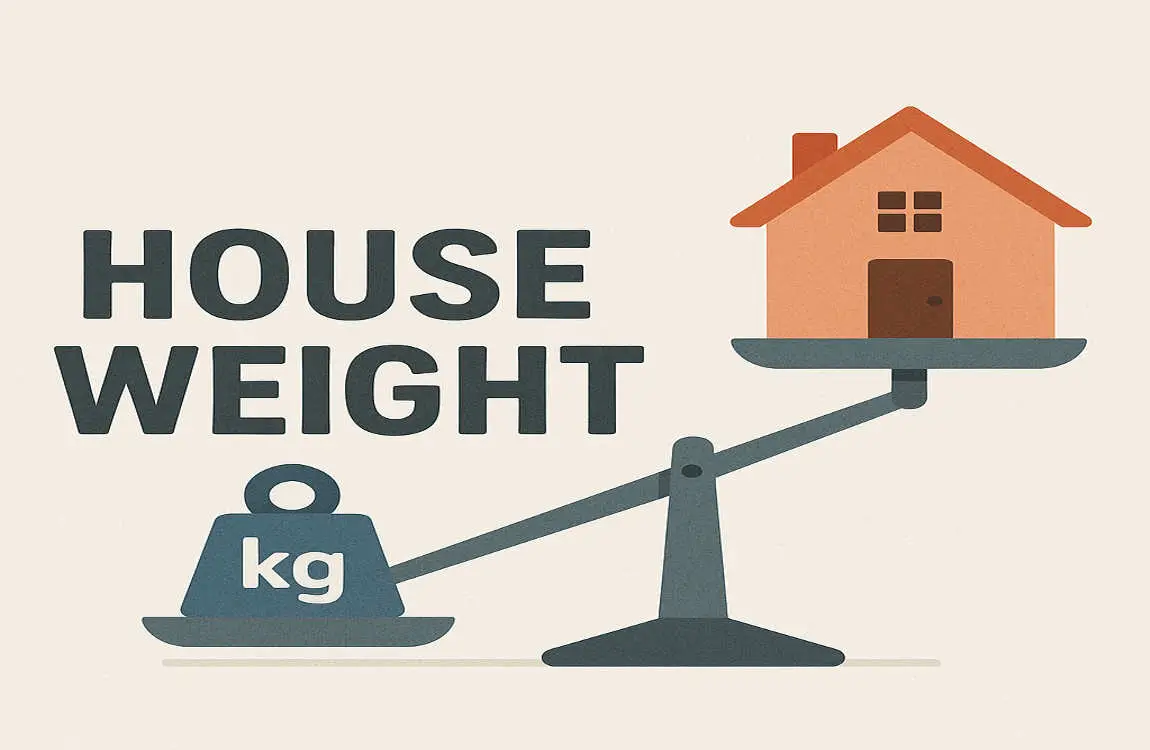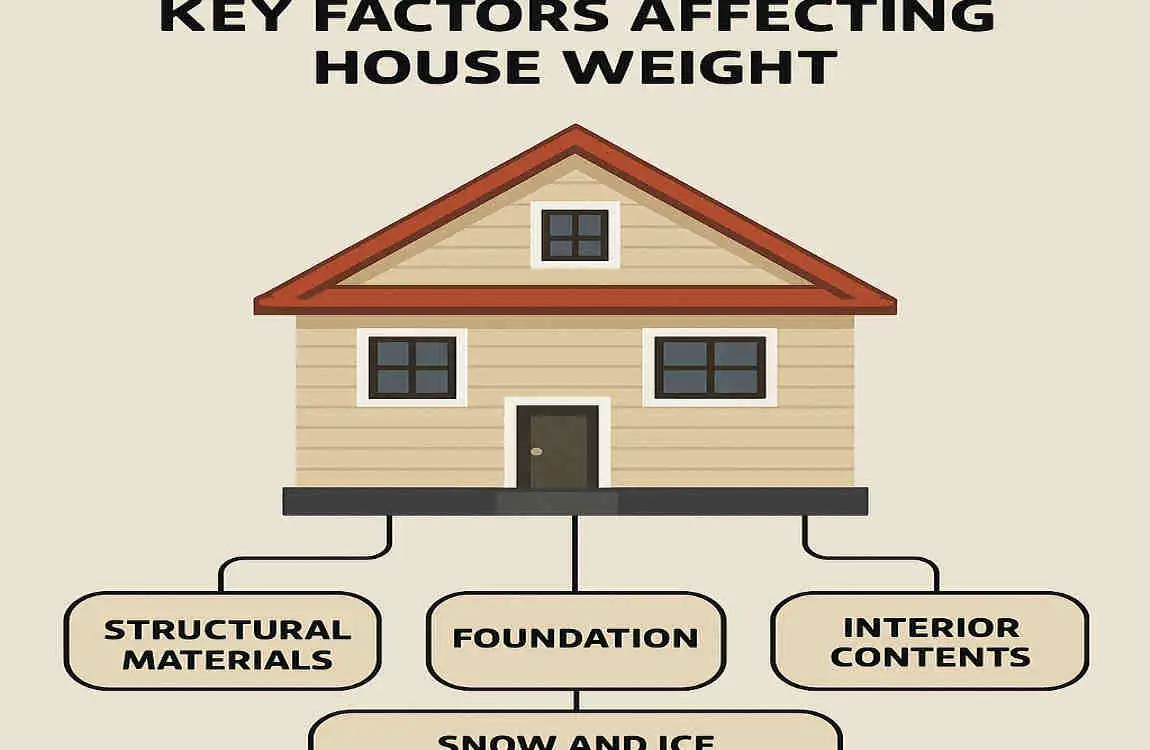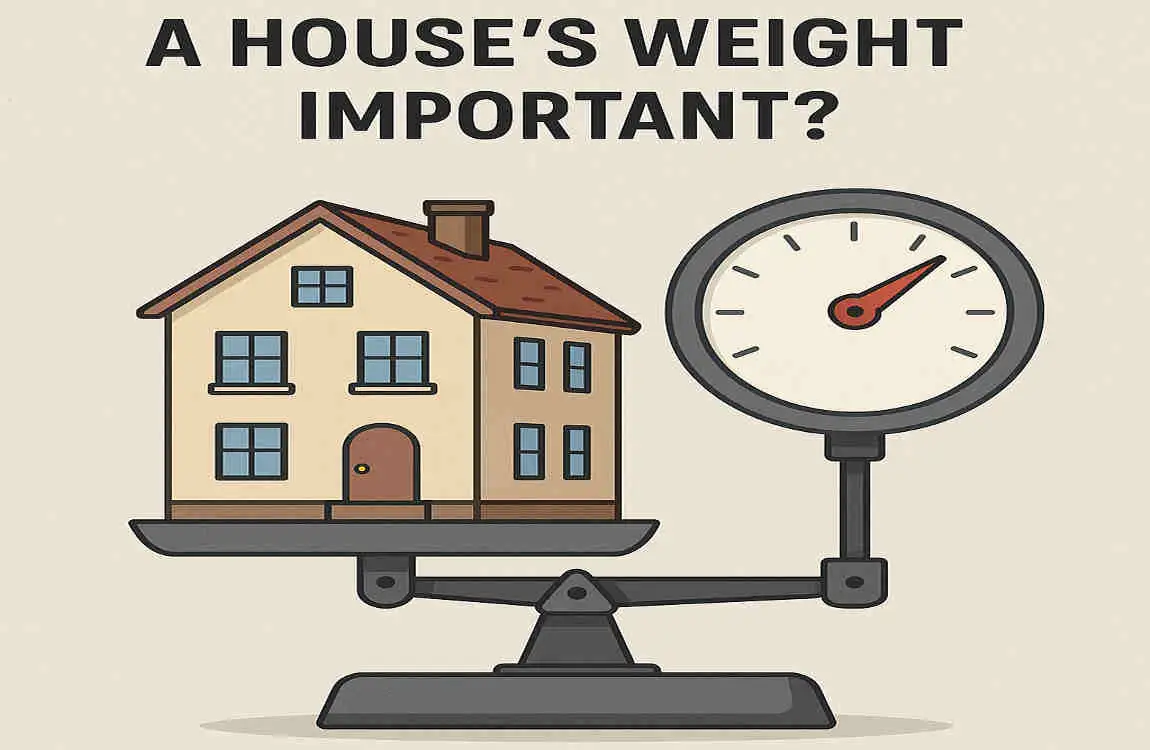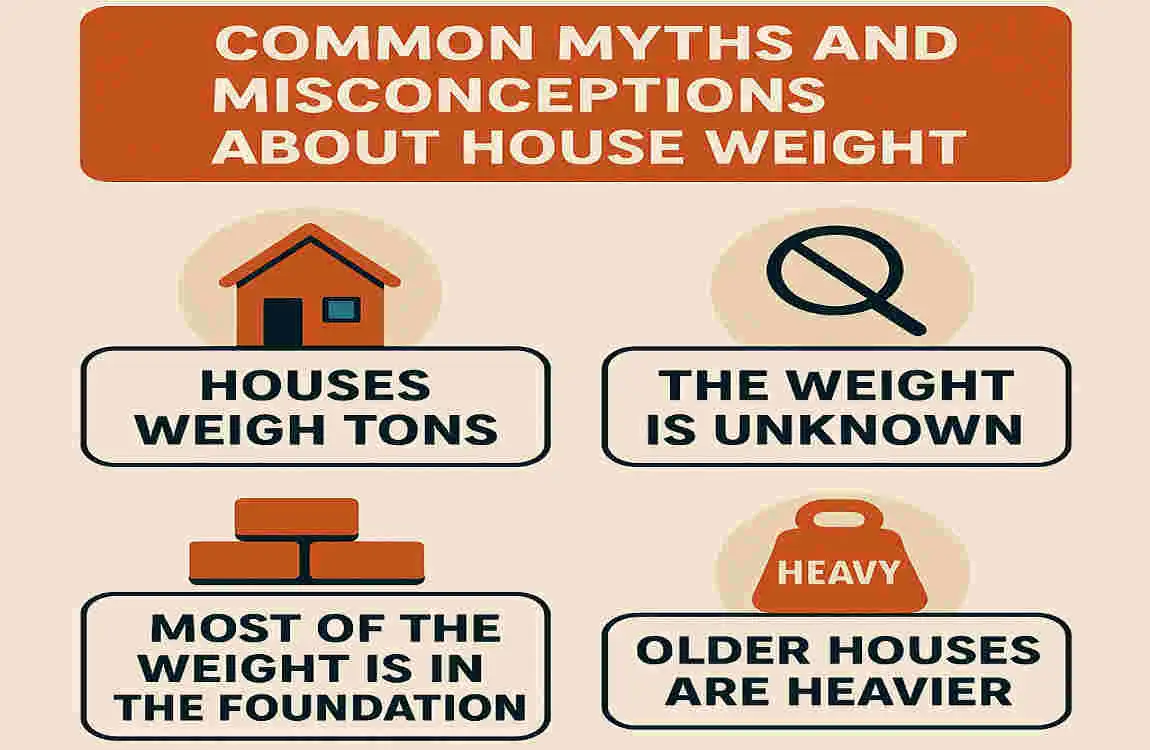When thinking about houses, most people rarely consider their weight. However, understanding how much a house weighs per square foot is crucial for various practical reasons, ranging from structural design to relocation and insurance. In this article, we’ll dive deep into the topic, breaking down the factors that influence house weight, offering expert insights, and addressing common misconceptions.
What Does “House Weight” Mean?

Before we dive into the numbers, it’s essential to clarify what we mean by “house weight.” Simply put, the weight of a house is the total estimated mass of the structure, including or excluding interior contents such as furniture and appliances.
Why Is House Weight Measured in Pounds Per Square Foot?
The weight of a house is often expressed in pounds per square foot (psf) because it provides a standardized way to estimate the distribution of weight across a given area. This practical measure is vital for:
- Construction and foundation design: Properly distributing weight ensures the house is safe and stable.
- Relocation or house lifting: Accurate weight estimation helps prevent damage during moves.
- Insurance and structural assessments: Knowing the weight helps in calculating risk and coverage needs.
Average Weight of a House Per Square Foot
The weight of a house varies significantly depending on its size, number of stories, and materials used. Below are typical weight ranges based on square footage and number of floors:
Single-Story Homes
- Average Weight: Around 200 pounds per square foot.
- Example: A 1,000 sq ft single-story house would weigh approximately 200,000 pounds.
Two-Story Homes
- Average Weight: Around 275 pounds per square foot.
- Example: A two-story house with 1,500 sq ft total would weigh roughly 412,500 pounds.
Three-Story Homes
- Average Weight: Around 350 pounds per square foot.
- Example: A 2,000 sq ft three-story home would weigh about 700,000 pounds.
Why Does Weight Increase With Stories?
As houses grow taller, additional materials like load-bearing walls, stronger foundations, and reinforcements are required to support the added weight. This naturally makes multi-story homes heavier per square foot compared to single-story structures.
Key Factors Affecting House Weight

Numerous factors influence a house’s weight. Let’s explore these in detail:
Building Materials
The materials used in construction significantly impact a house’s total weight. For example:
- Wood: Lightweight and commonly used in residential construction.
- Brick: Heavier than wood but offers durability.
- Concrete: Hefty, especially for foundations and walls.
- Steel Framing: Adds significant weight but provides excellent structural support.
Example Comparison:
Material Type Average Weight (lbs/sq ft)
Wood Frame 180–220
Brick 200–300
Concrete 300–400
Steel Frame 300–500
Foundation Type
The foundation is often the heaviest part of a house. Common foundation types include:
- Slab-on-grade: Lightweight compared to others.
- Full basement: Adds substantial weight due to concrete and excavation.
Roofing Materials
The type of roof also contributes to the total weight. For instance:
- Asphalt Shingles: Lightweight and standard.
- Clay Tiles or Slate: Heavy but more durable.
Interior Contents
While the structure itself is the primary contributor to weight, don’t forget about the contents inside:
- Furniture, appliances, and personal belongings can add thousands of pounds.
- A fully furnished home weighs much more than an empty one.
Regional Construction Norms
Geographical regions have distinct construction requirements based on climate and local codes. For example:
- Houses in hurricane-prone areas may have reinforced materials that increase weight.
- Homes in snowy regions often have heavier roofs to support snow loads.
How to Estimate Your House’s Weight
If you’re curious about your home’s weight, here’s how to estimate it:
Basic Formula
To get a rough estimate, use this formula:
House Weight = Total Square Footage × Pounds Per Square Foot
For example:
- A single-story, 1,500 sq ft house averaging 200 psf would weigh:
- 1,500 × 200 = 300,000 pounds
Adjusting for Materials and Stories
If your house uses heavier materials like brick or has multiple stories, adjust the pounds per square foot accordingly:
- Add 50–100 lbs/sq ft for brick or concrete.
- Add 75–150 lbs/sq ft for each additional story.
Professional Tools and Services
For precise calculations, professionals use tools like:
- Structural engineering software.
- Weight estimation calculators.
- Consultation with contractors or relocation specialists.
Why Knowing House Weight is Important

Understanding your house’s weight isn’t just a fun fact—it has practical implications. Here’s why it matters:
Structural Safety
A house’s foundation must support its weight to prevent sinking, cracking, or collapsing. Knowing the weight ensures proper foundation design and maintenance.
House Relocation or Lifting
If you’re planning to move or lift your house, estimating the weight helps:
- Choose the right equipment.
- Avoid structural damage during the process.
Insurance Purposes
Insurance companies consider a house’s weight when assessing risk. Heavier homes may require higher premiums due to:
- Greater foundational stress.
- Increased risk of structural issues.
Engineering Assessments
Architects and engineers rely on weight calculations to:
- Design earthquake-resistant structures.
- Ensure the house meets safety codes.
Common Myths and Misconceptions About House Weight

Let’s clear up some of the most common myths:
Heavier Homes Are Always Stronger
While heavier materials like concrete and brick are durable, weight alone doesn’t guarantee strength. Modern wood-framed homes can be equally strong due to advanced engineering techniques.
House Weight Directly Affects Stability
Stability depends on weight distribution, foundation quality, and structural design, not just overall weight.
You Can Calculate Weight Precisely Without Professional Help
While rough estimates are possible, accurate calculations require specialized tools and expertise.
Frequently Asked Questions (FAQs)
How much does a 1,000 sq ft house weigh?
A single-story house of 1,000 sq ft typically weighs around 200,000 pounds, depending on materials and contents.
Does the foundation weight count in total house weight?
Yes, foundations (especially concrete foundations) are included in the total weight estimate.
Can house weight impact insurance premiums?
Yes, heavier homes may have higher premiums due to structural stress and potential damage.
How does house weight affect property value?
House weight itself doesn’t directly affect value, but factors like material quality and stability do.




